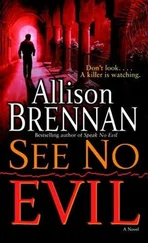Why should it be she who made the compromise? Why couldn’t Alex move to New York? She understood very well his reasons for stepping away from the financial world, but perhaps he could do something with airfields or flying. He could at least try; he could at least discuss it with her. The anger and frustration that had been simmering since that disastrous weekend flared up again.
Then she had flown up to Martha’s Vineyard to spend the long Memorial Day weekend at the end of May at her folks’ place. Over dinner her father asked her about Alex. She explained the problem, why the relationship wasn’t really going to work. She expected him to leave it at that, her father never usually seemed to take more than a polite interest in her boyfriends, whether because he wasn’t interested or he respected her privacy, she wasn’t quite sure. But this time it was different.
‘Do you like this man?’ he had asked.
‘Yes. Yes, I do.’
‘A lot?’
She had reddened at this untypical question from her father. ‘Yeah, I guess. A lot.’
‘Then why don’t you talk to Trelawney Stewart? See what they can do.’
‘You know how these firms work, Dad,’ she said. ‘They’ll just view it as a sign of weakness. I’m doing really well at the moment and I don’t want to screw it all up.’
Her father exchanged glances with her mother. Sandy detected a conspiracy. They ate in silence. Sandy was wary.
‘Stanhope Moore asked me to go to Sydney once,’ her father said at last. ‘They wanted to make a big push in Australasia. They wanted me to head it up. It was a great opportunity. I guess I was about thirty-five. You were three.’
‘I don’t remember going to Sydney,’ Sandy said.
‘No. Grandmother Peabody was very sick. She had cancer and Mom was spending a lot of time with her. I told them we couldn’t go. They suggested I leave the family in the States and spend one month there and two weeks here. They were very persuasive. But your mother needed me here with her.’
‘OK, but that didn’t hurt your career, did it?’
‘Sure it did. I got passed over for promotion that year and the next. It took me three or four years to get back on to the fast track.’
‘That was different,’ Sandy protested. ‘You’re a man, they understand that kind of thing. I’m a woman. I’m not supposed to put my personal feelings ahead of the job.’
Sandy’s father shrugged. ‘I don’t know where you get that idea from. I nearly went to Sydney. I guess all I’m telling you is that I’m glad I didn’t.’
Sandy looked at her father, countless arguments running through her head. Her father’s point was, of course, that his career had recovered. Until the bank had been swallowed up in a merger a few years earlier, he had been chairman of Stanhope Moore, one of the most prestigious and conservative commercial banks in the country.
But Sandy couldn’t agree with her father. It just wasn’t allowed. She loved him of course, and he loved her, but ever since she was eighteen he had been the enemy. At college she had stumbled into a student debate on whether the United States’ big banks should forgive the billions of dollars of debt owed to them by the world’s poorest nations. The argument that they should seemed to Sandy incontrovertible. She also realized that her father was one of the few men in the country who could really make it happen. And so, unlike the other fifty or so students in the room, Sandy could actually influence the fate of the Third World.
That running war with her father was still being waged, if on a much lower level than it had been in her early twenties. Cornered by him on her attitude to Alex and to her work, Sandy’s instinct was to summon the plight of the starving in Africa and Latin America to her aid, but she didn’t. She did, however, exercise her right to behave grumpily for the remainder of the weekend.
But her father’s point had sunk in. And now, now she was willing to give it a go.
Her passport stamped, she strode through baggage reclaim and customs, her carry-on sized suitcase trundling along behind her. She decided to take the train to Paddington rather than a taxi. She didn’t know what it was about her, but whenever she took a cab in London, invariably the driver began a conversation. Usually she didn’t mind, but this time she wanted some peace and privacy. She bought an International Herald Tribune to hide behind and sought out the platform.
She had been wary of discussing her plan with Alex. This was partly because there was always a chance it might not work, but also to give herself the opportunity to back out if she changed her mind. Although, as she found herself drawing nearer and nearer to Trelawney Stewart’s London office, she realized she was becoming surer of what she was doing. She’d call him after the meeting, perhaps arrange to see him that night or the next.
She had no idea how the relationship would develop. But she smiled to herself. She was looking forward to finding out.
Calder spent the day at the airfield. It was a perfect morning for flying, and he had taken the opportunity to put his little red Pitts biplane through its paces, performing a series of barrel rolls, outside loops, Cuban eights and Immelmann turns over the Norfolk sky. But a stiff crosswind picked up in the afternoon, making take-off and landing impossible. He decided to meet Kim at the hospital. After his stray thoughts of the previous evening, he wanted to see Todd again, remind himself as forcefully as possible that Kim had a husband and he was in a coma.
As he pulled the Maserati into a parking space, he saw Kim unlocking her rented car on the other side of the car park. He got out of his own car and waved to her. She saw him, and came over to him, smiling.
‘Are you here to see Todd?’
‘Yes,’ said Calder.
Kim looked at him strangely. She couldn’t really ask why, but she could think it. ‘I’ll come back in with you.’
‘Any change?’
‘None. I spent the whole day with him, though. I got some reading done.’ She lifted the thick paperback she was carrying.
‘Any sign of the other van Zyls?’
‘Cornelius took a helicopter down to London first thing. Caroline was here this morning, but she’s on her way back to California now. We talked a lot. I like her.’
They walked through the familiar corridors to the private room where Todd had been transferred. By the head of his bed was the figure of a woman crouching on a chair, bent over towards his face. Calder saw her straight away, but Kim didn’t notice her at first. As they moved closer, the woman turned. She was young and strikingly pretty, with yellow hair in a bob, white teeth and an upturned nose. Her big blue eyes were red and brimming with tears. When she saw Kim her jaw dropped and her face, red from crying, lost its colour.
‘Donna?’ Kim said.
‘Oh, my God,’ the girl said in an American accent, and put her hand to her mouth. She stumbled to her feet, pushed past Kim, and headed for the exit.
‘Donna!’ Kim shouted after her. ‘Donna!’
Kim’s face was pale. Her lips were trembling. A nurse appeared to see what the fuss was about. ‘Has that woman been in here before?’ Kim asked the nurse. ‘Have you seen her before?’
‘Here, have a seat, Kim,’ the nurse said. She was a solid woman with a strong Norfolk accent.
‘She has been here before,’ Kim said. ‘Hasn’t she?’ She glared at the nurse, demanding an answer.
The nurse nodded.
Kim’s cheeks, so pale a moment before, reddened. She switched her glare to her unconscious husband, entangled in tubes, oblivious to the drama around him. Then she stared at Calder, her face a mixture of anger and bewilderment.
‘Let’s go,’ Calder said, putting an arm round Kim and leading her from the room. A tear ran down her cheek and then another. They walked in silence down to the hospital café, and Calder got them both a cup of tea.
Читать дальше












